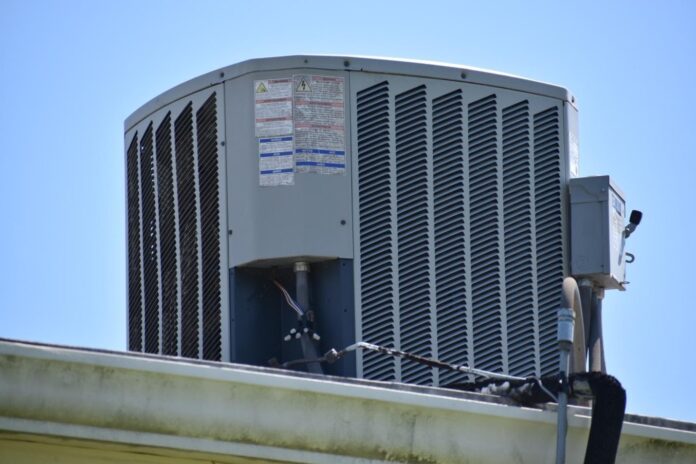An HVAC system is often used for more than just heating and cooling space as it enhances the air quality, thereby helping occupants feel more at peace. HVAC systems come in various forms, but they all have the same essential components.
First, there’s a source of fresh air intake, either from the outside or from within the structure. This procedure is referred to as ventilation, and it is divided into two types.
Then the air is either heated or cooled, and any excess moisture is removed. When the air is clean, fresh, and at the right temperature, it is supplied into the home. This requires passing through a maze of ducts and a ceiling register to reach adjacent rooms for central systems. In this article, we’ll be discussing the seven major types of HVAC systems available, and at the end, you’ll be able to select which best fits your home.
Heating and Cooling Split Systems
The most popular HVAC system is a heating and cooling split system. As the name implies, it is divided into two independent components, one for heating and cooling. It’s worth noting that these systems’ internal and external features are easily distinguishable. Outside, such HVAC units feature a chilling system that uses fans, coolants, and radiators to chill air, as well as a vent to keep excess heat out.
The heater in a heating and cooling split system, on the other hand, is housed underground or in another basement room and consumes energy to heat the home. A typical thermostat is used in this method to retain the temperature within a livable range.
Hybrid Heat System
The properties of a hybrid HVAC system are similar to those of a split system, but there are several vital variances. One of the distinguishing characteristics of this HVAC system is its hybrid heating system, which aids in the reduction of energy expenses. The residents are in charge of determining the key distinctions.
The ability to convert from quicker and more comprehensive gas power to much more economical and quieter electricity power allows the homeowner to choose how to heat their houses.
This system uses typical ductwork and thermostats, and it has all the benefits of a split system plus the extra power conservation and lower electricity bills.
Packaged HVAC System
This system combines evaporator, condenser, and compressor into a unit typically mounted on the roof or close to the foundation. It meets a home’s cooling and heating requirements.
Because of its small size, it is an excellent choice for individuals with limited space. This HVAC system is both energy efficient and simple to keep up with. It is often utilized in hotter locations because its heating system is not as potent as other alternatives.
HVAC Zone System
A zoned HVAC system is a heating and cooling system that uses valves in the ductwork to regulate and reroute air to specified areas of a building or dwelling.
By developing personalized temperature zones based on their needs, the zoning system will allow HVAC users to experience more convenience and quality.
Split System (Mini)
This HVAC system has gained popularity for several reasons: it does not require ductwork, is one of the most energy-efficient heating and cooling solutions for homes, and the interior section of micro split heat pumps is concealed within your home’s existing ductwork.
Geothermal Heat Pump System
Geothermal heat pumps move water in underground pipes to take advantage of the earth’s constant temperature for heating and cooling in cold and warm climes, respectively. Instead of gathering heat from chilly and sub-freezing places, the refrigerant draws or collects heat from the earth more effectively while heating. The heat is discharged into the earth as it cools to keep the ideal temperature.
It is a favorite of pro-environmentalist households due to its effectiveness and use of renewable energy.
Single Stage or Multi-Stage HVAC System
Since the devices are adjusted to give benefits during the cold winters or hottest summer periods, single-stage heating and cooling are popular in colder winter regions and hot and sunny areas, respectively. However, this implies that, for the most majority of the season, those heating or air conditioning systems are functioning at max potential when they’re not necessary. A multi-stage system can help you conserve energy and resources in this situation.
Conclusion
Many businesses concentrate on one part of the HVAC system and promote it as their main attraction. This can include quiet operation, quick dehumidifiers, and smart controllers like phone apps. This option may work for you. But your interests and concerns matter too. We hope that we’ve assisted you in finding the ideal method for your heating, ventilation, and air conditioning; regardless of whatever HVAC system you choose, remember to consider its pros and cons and whether they align with your needs or not.










